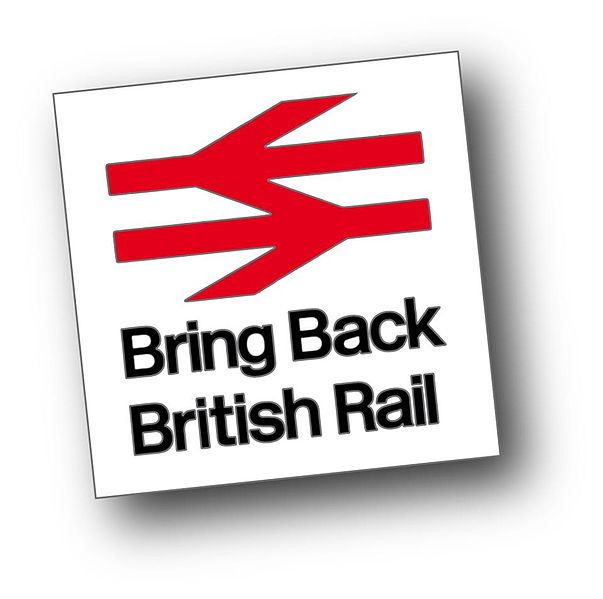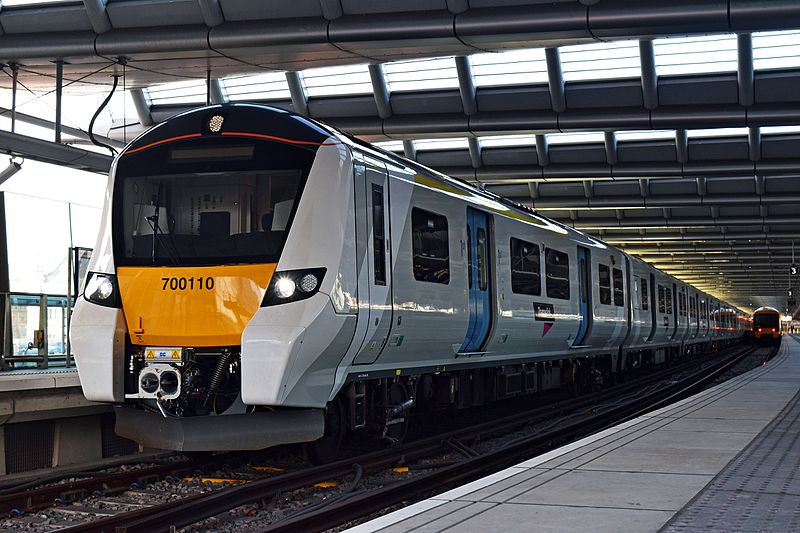In the Continental Telegraph, Tim Worstall points out the mutually exclusive claims about the state of British passenger rail services and the counter-productive demand to shuffle it all back into the state’s tender mercies:

Wikimedia caption – “This is the Bring Back British Rail, a reverse image of the old BR logo, (now used by the TOC’s) to show we are heading the wrong way with Rail in the UK”
A standard whinge in Britain today is that rail privatisation has failed – just look, the trains are so crowded! The thought that people flocking to use something proves failure being a most odd one of course. That more people use the train sets to travel longer distances more often should be seen as a triumph of privatisation, not a proof of its failure. And we should note that the last few decades of British Rail did show – population adjusted – falling ridership.
There’s also a certain puzzlement at the next cry of outrage – that ticket prices are too high. If people are flocking to use something etc then it’s difficult to insist that prices are too high. […] Popularity both proves that the basic system is wrong and also that prices are too high. Tough this economics stuff, isn’t it?
As to the congestion part, well, on those popular lines and routes the route itself is running at capacity. It’s just not possible to squeeze more trains onto the tracks without them running into each other. Ah, but goes the cry, government should do something! But the tracks are already run by government, that we’re not getting more track capacity is government’s fault. Giving us a good guide to how it would be if government ran it all – as history tells it was like when government did.
As to the prices, well, that overcrowding shows us that prices are too low. We need some method of rationing that access to something being over-used. Price is always the best method of rationing. Thus prices should be higher to relieve that over-crowding – while we wait a few decades for government to pull thumb out and provide more track capacity.




